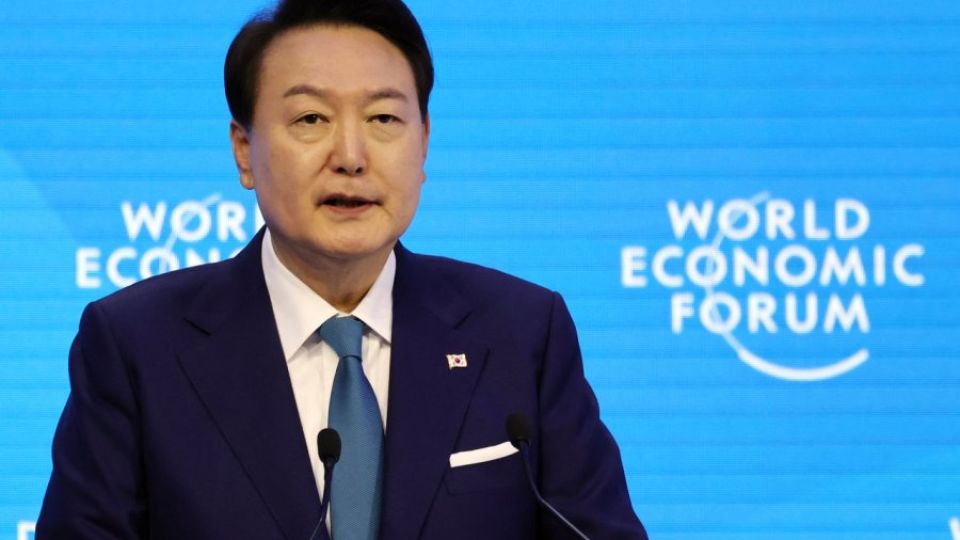January 20, 2023
SEOUL – President Yoon Suk Yeol stressed global cooperation and solidarity to overcome multiple global crises, and reaffirmed his willingness to return to nuclear power policies that his predecessor sought to scrap during his speech at the World Economic Forum in Davos, Switzerland, Thursday.
This year’s Davos forum, under the theme of “Cooperation in a Fragmented World,” was marked by the absence of leaders of major economies, including US President Joe Biden and Chinese President Xi Jinping, amid growing nationalism and protectionism across the globe.
Yoon, however, stressed the need for international cooperation and solidarity to overcome crises, seeking to buck the global trend of shutting their walls to each other.
“The world is under the pressure of economic uncertainty and the polycrisis,” Yoon said in the speech, referring to a range of global emergencies that include an inflation shock, climate change, the war in Ukraine and health crisis.
“The pandemic, geopolitical conflicts, the rivalry for technological hegemony and the weakening multilateral trade system have led to the fragmentation of the global supply chain, causing it to reshape,” Yoon said.
He said the way to overcome these challenges was to strengthen cooperation and unite in solidarity.
“Even in the current global economic landscape marked by fragmentation, the free trade system, which has contributed to global economic growth and enhanced humanity’s freedom, remains a global public good that can never be forsaken.”
Building up walls and intensifying protectionism cannot be the right answer, he added.
In a question-and-answer session after Yoon’s speech, Klaus Schwab, chairperson of the World Economic Forum, asked Yoon what kind of relation Korea would pursue with China, Yoon said although China has a “different” political system from South Korea it should not be “excluded” or “distanced from” because that would be out of line with the multilateralism that had contributed to global prosperity.
Korea is willing to cooperate with countries that will “not invade us” and they are our potential partners, he said.
Yoon also reaffirmed the nation’s willingness to refocus on nuclear power.
“As a key means to bolster our energy security while reducing our reliance on fossil fuels, we must turn our attention to nuclear power and clean hydrogen,” he said.
Nuclear power plants enable a stable electricity supply while reducing greenhouse gas emissions, he added.
When Klaus Schwab asked about Korea’s future nuclear power plant strategies, Yoon said Korea’s nuclear power eco-system had faced difficulties due to past phase-out policies but the country will expand nuclear power generation in future.
“We also wish to share our nuclear power technologies with other countries through various exports and cooperation,” Yoon said.


